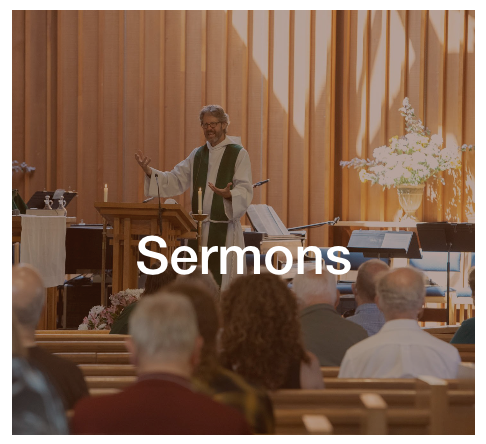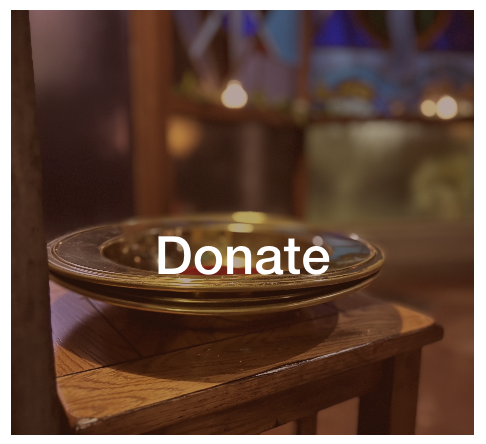The Pathfinder: February 29, 2024
Keeping Time, Making Meaning
It takes 365 days for our Earth to go all the way around the sun. Or, more precisely, it takes 365 ¼ days to go around the sun. Or, even more precisely, it takes 365 days, six hours and nine minutes for our Earth to go around the sun. You get the drift. Actually, that’s the problem. The drift. For thousands and thousands of years, humans have been marking our days and our years based on the appearance of the sun, but that extra portion of a day has made it challenging for us to keep track of time.
The basics of keeping track of time with the sun are fairly simple. You’ll find this at the very beginning of our first book of sacred text. When the sun radiates light—day. When it doesn’t–night. Then we started marking more times. When the sun is most intense––the summer solstice. When it’s not––the winter solstice. When the light and the dark are evenly divided––the vernal and autumnal equinoxes (or, equal night). To keep track of this– and to recognize and prepare ourselves for these cycles of life and death– we created the solar calendar. And, over time, we faced a vexing question: how do we account for those bonus six hours and nine minutes? Or, how should we account for an existence that is outside of our control and slightly out of order? Enter (eventually) the leap day, which we are enjoying today.
But wait, there’s more. Because our nearest star is not the only light we see. We have also closely observed our moon. We’ve recognized its effect on all kinds of creatures (like birds and oysters) at different times in its cycle, and we’ve created practices and patterns accordingly. (See: ancient agricultural practices, or current biodynamic farming.) This moon appears and disappears and reappears with regularity, every 29 ½ days to be precise. So, another way of keeping time was formed – the lunar calendar of 354 (or so) days.
You might be picking up on another fly in the ointment here: the pesky difference of 11 days between the solar and lunar calendars. More on that later.
In one way of looking at this, we have overlapping ways of keeping time: the orbit of the sun that determines intensity of sunlight and therefore seasons of winter, spring, summer and fall, and the orbit of the moon that subtly pulls on the oceans of the Earth to create tides.
And, we as humans are meaning-makers, storytellers. Whether we are simply inserting meaning into a series of events that happen regardless of any intent, or recognizing something that is intentionally fruitful, we have found it deeply meaningful to keep time as part of existing. So, it is not surprising, then, that calendars, or ways of keeping track of time, are at the heart of many religious traditions. Because what is more essentially human than trying to account for our short and precious experience of existence?
Judaism, the tradition that Christianity is rooted in, is based on a lunar calendar. The roots of this way of keeping time can be found in Exodus 12, when God tells Moses to mark that month as the first month, when the Passover of the Lord would take place in Egypt. For thousands of years, Jews have been keeping holy days and festivals according to the cycles of the moon. But as we noted earlier, there is an 11 day difference between a solar year and a lunar year, in addition to that extra ¼ solar day. Which means that in keeping a lunar calendar, a holy festival, like Passover, would be earlier and earlier every year. (The Islamic calendar is also on a lunar calendar but does not adjust for the 11 day difference between sun and moon. This means that Ramadan, the holy month when the prophet Mohammed received the Quran, continues to move around the solar calendar, 11 days earlier each year, irrespective of season.)
So here’s the challenge: if a festival that celebrates the harvest, like Sukkot, were to happen when the crops were still growing– or, even more strangely, when they were being planted– it would likely lose its purpose. And if a holy day originally experienced in the spring, like Passover, were celebrated in the winter thanks to the vagaries of disordered timekeeping, would it still hold its meaning?
What are faithful people to do to keep time and meaning in a world that orbits the sun in an imperfect way, and that’s influenced by a moon that keeps its own time?
In an act of mathematical and astronomical genius, a couple thousand years ago Jewish scholars found a way to keep their lunar calendar of religious festivals in sync with the solar calendar and to account for the pesky extra six hours and nine minutes every solar cycle. Unlike the Gregorian calendar, which adds a day every four years, the Jewish calendar adds a month every several years (seven times over a 19 year cycle, actually).
In fact, this year is 5784 according to the Jewish calendar, and as with our Gregorian calendar, it is also a leap year. So, in 5784 (or 2024), while the Gregorian calendar is adding a day, the Jewish calendar is adding a month. (And, for those interested in the Western Christian method of keeping Easter on the Sunday after the full moon on or after the spring equinox let me introduce you to the Golden Number, found on page 880 of the Book of Common Prayer. Seriously.)
Why might any of this be important? Because as humans, we find meaning in honoring and celebrating our relationship with the forces that govern existence. And as Christians, we understand this force or ground or existence to be God. When we keep time, we're trying our best to find symbols and stories that capture a mystery and complexity beyond our ability to express or even fully understand. In that way, the practice of keeping time is like the practice of faith in a God whose presence we clearly experience but whose essence we can only fleetingly grasp. Therein lies the rub.
Which is why, in Advent and Christmas, in Lent and Easter, in ways small and large, we continue to lean into the cycles of life and death and life again, keeping track of our days and months, one leap at a time.
Peace,
– Phil+
Maundy Thursday: Connection Across the Ages
On Maundy Thursday, our community practices the ritual of foot-washing. This tradition originates from the Gospel accounts of Jesus washing the feet of his disciples during the Last Supper.
Since last year’s Maundy Thursday service, we as the staff noticed that there was a connection between Cathy Goshorn and Henry Wilson (age 4). Below is the story, from Mark Wilson (Henry’s dad) and Cathy, of how this connection began.
Mark: Last year’s Maundy Thursday service was my son Henry’s (3 at the time) first experience with the age old ritual of washing feet. As Henry sat in my lap, he looked on curiously as Cathy Goshorn poured water over my feet. I was touched, and more than a little surprised, at his silence. It appeared that Henry understood something magical was occurring. Surely, he was unaware of the symbolism. Surely, he could not comprehend the symbolic gesture of being of service to one another.
However, as Cathy began washing Henry’s feet, my disbelief began to fade. Henry’s face clearly acknowledged Cathy’s act of love. As the water poured over Henry’s feet, I could feel his entire body relax with ease. It was an easing that only occurs when every atom of your being feels completely safe and loved. At the molecular level, Henry was experiencing Maundy Thursday. He knew, instinctively, that he was loved and cared for by a stranger.
Cathy: Kneeling down, waiting to wash the feet of an All Soulsian, I looked up and saw Henry Wilson sitting in the chair looking at me with wide eyes and a curious look. I asked him, "Would you like me to wash your feet?" Timidly, he looked to Mark (his dad) who smiled and nodded then Henry smiled and nodded. As I washed these precious little dangling feet, a warmth in my heart felt the extent of replenished love. Henry and I hugged and we have developed a sweet relationship since. As Mark says..."We are foot washing buddies."
Mark: My disbelief faded further, as Henry helped me wash Cathy’s feet. As he gently dribbled water over Cathy’s feet, his joy visibly conveyed the understanding that Cathy was equally loved. After he finished washing her feet, we all hugged. In that moment, Henry, Cathy, and I were “in service to one another.”
Any doubt I have about Henry’s understanding of that moment has been completely erased by the multitude of Sunday’s since that service. Every Sunday, I watch Henry run into Cathy’s arms and give her a massive hug. Each hug is a reminder, at least for me, that we are all one All Souls family. It is a reminder that we are all part of something truly magical.
As we approach this year’s Maundy Thursday service, I eagerly look forward to connecting again with that magic. I look forward to reminding myself to be of service to one another. I look forward to sharing a potentially magical moment with another All Soulsian.
Cathy: Maundy Thursday is typically a reflective, quiet, contemplative service and a time to share love with others. Thank you, Henry!
Mark: At age four this year, Henry might only be interested in throwing water on his sister and yelling something inappropriate! Either way, it will be pure All Souls.
This year, we invite you to join us for an Agape Meal (6-7:15p) and Maundy Thursday service featuring foot-washing (7:30p) on March 28th.
A foot-washing ritual will also be part of the Holy Week for Children service the following day, Good Friday, at 4pm.
– Mark Wilson and Cathy Goshorn
A Salutary Remedy: Ale Souls Report
There is a new brew bubbling away upstairs in the acolyte room as the miracle of fermentation plays out for our Easter celebrations.
The Ale Souls group really feels like ministry as we have gathered for fellowship and planning and for the cooperative brewing process itself.
This time, we decided to make a Saison style beer, which is a traditional farmhouse ale that originates in the French part of Belgium. We added locally foraged rosemary as well as orange and lemon zest. The hand of Fate played a big part in this recipe when we accidentally doubled the hops required. So while we hold to traditions, we also allow something new to emerge and pray that it tastes good.
This term, I am taking a class at Jesuit Theological Seminary called “Spirituality of the Earth,” taught by Sister Mary McGann (author of The Meal That Reconnects: Eucharistic Eating and the Global Food Crisis, 2020). The readings so far for this class have been blowing my mind regarding our relational place as humans in the vast story of all Creation in God’s image.
I am increasingly aware that EVERYTHING matters and especially significant is our relationship to the living organisms which nourish and sustain us with their life, death, and bodily sacrifice… yes, even if you are vegetarian or vegan. The activity of millions of daily deaths offering new life over billions of years continues to play out with a magnitude which remains mostly unfathomable for my wee brain.
The current activity of the beer becoming its full potential through life and death offering new life by countless organisms (before we even drink some) has vivid parallels with the teaching of Prof. McGann. Our role in growing, producing, consuming, and honoring the beings and processes of our miraculous planet cannot be overestimated. Moreover, these roles relate directly to what it means to lead a worshipful life.
Beer brewing is an ancient story within the Church perhaps most obviously in the monastic traditions of Europe, and our current participation in these stories feels exciting!
We hope you can join us in praying for this ale to come, and that you’ll taste the love and sharing that runs through its story when you sample some at Easter.
We found an old prayer attributed to Saint Arnold (1040-1087), patron of hop-pickers and beer brewers, which we prayed as we poured the brew into the fermenter bucket.
Bless, O Lord, this creature beer, that Thou hast been pleased to bring forth from the sweetness of the grain: that it might be a salutary remedy for the human race: and grant by the invocation of Thy holy name, that, whosoever drinks of it may obtain health of body and a sure safeguard for the soul. Through Christ our Lord. Amen.
Pray along with us, taste the results at Easter, and consider joining our brewing team next time ‘round!
– Michael Drell
Announcements & Events
Happening This Week
Worship This Sunday
8:00am, Holy Eucharist in Chapel
10:30am, sung Eucharist (click here to access the live stream)
Wednesday 9am Service. Join the Zoom call here, or join us in person in the Nave. Password: 520218.
Reading Between the Lines Bible Study, Sunday @ 7:00a. Click here to join by Zoom, or join them in-person in the Common Room.
Youth Group is happening this Sunday, March 3rd, 7-8:30p in the Parish Hall.
Adult Formation
Is THIS Anglican Music? with Dr. Anne Yardley
Just as the Book of Common Prayer has changed and adapted, so too has the musical repertoire in churches of the Anglican Communion grown. In this three-part class we will look at the development of English hymnody and choral music and the subsequent movement of that repertoire around the globe as the Anglican church expanded. We will then try to answer the question “what is Anglican music?” Parish Hall, 9:15a (February 25, March 3 &10)
Book Club: The Confessions by St. Augustine with Jack Shoemaker
Saint Augustine’s Confessions, written in the fourth century, is among the first autobiographies ever composed. It has been extraordinarily influential, and yet it may now be one of the least read of the Christian classics. Whether this is your first time reading it or your tenth, you are invited to join in lively discussion with small reading group. Please read any translation you like — we’ll share and compare. Three sessions: Week 1 chapters 1-6; Week 2 chapters 7-10; Week 3 chapters 11-13. Common Room, 9:15a (February 25, March 3, 10)
Children & Family
Nursery The downstairs nursery is open and available to you for your use whenever you’re at All Souls. This is not a staffed nursery, so an adult must be there with your child, but if you need a quiet place to take a time out, change a diaper, let your child play or take a rest, the nursery is open for you to do all of those things. If there is a service going on that’s being livestreamed, you will be able to watch the livestream on the computer in the nursery as well.
Children’s Ministry Sunday School continues each week during the 10:30 a.m. service for children from pre-K through 5th grade. Children head downstairs at the start of the service, then return after the “Peace.” See an usher if you need directions.
All ages attend a shared Godly Play “Storytime.” Then, our youngest kids (pre-K to 1st grade) remain in the Godly Play classroom for “wondering” and “work” time, while our older kids (grades 2-5) split off for deeper investigation and exploration.
Note to Parents: We encourage all kids to return to the sanctuary after Sunday School and save outdoor playground time for later. In the Godly Play curriculum, we view the Eucharist as an important extension of Sunday School; the sacred space that we create downstairs continues and expands as we join the whole congregation upstairs. We appreciate your help reinforcing this norm!
Read more about our Sunday School program here.
Save the Date - Holy Week for Kids service, 4p on March 29th. Join us for a Godly Play Passion story, prayer practices, and Stations of the Cross.
Youth Program - Youth Group happens weekly on Sundays from 7-8:30 in the Parish Hall. If you are not receiving weekly Youth Program updates but would like to, please reach out to Emily B to be added to our mailing list.
Godly Play & Faith Explorers Teachers We are actively seeking teachers and/or alternates to add to our Sunday School team for all ages. If you are interested, please reach out to Emily B. (All teachers will go through SAFE Church training and background checks).
Justice & Peace
March to combat Anti-Semitism
A message from our partners in Building Interfaith Bridges and our neighbors at Congregation Beth El: You are invited to join the largest gathering of Northern California residents to stand in unity with the Jewish community and combat antisemitism. In response to escalating acts against the Jewish community, Jews and allies throughout Northern California will gather for an unprecedented march to support the values of inclusion, respect, belonging, and democracy. Together, we will seek to foster understanding, connect diverse communities, and reinforce our commitment to a safe world, free from fear and prejudice.
Sunday, March 3 | 1:30 p.m. - 4:30 p.m. | San Francisco
The march will start at Embarcadero Plaza, San Francisco at 1:30 p.m. Learn more and register to attend.
Ways to help with the Israel-Hamas War, from Episcopal Relief & Development
Since the start of the current Israel-Hamas war, Episcopal Relief & Development has been supporting long-time partners in the Holy Land including Al Ahli Hospital, a ministry of the Episcopal Diocese of Jerusalem, to provide emergency medical support in Gaza. Despite being hit by two explosions that damaged buildings and claimed hundreds of lives, the hospital is still serving those who are in need of care. Episcopal Relief & Development stands with the brave staff of Al Ahli Hospital as they risk their lives to help others.
Please pray for peace in the Holy Land and consider making a contribution to the Episcopal Relief & Development Middle East Fund to help meet the growing needs of all people in the region.
Stay informed about the Episcopal Relief & Development response at episcopalrelief.org.
Needs of the Community
Meal Train: Do you ever wonder how you can help out your fellow parishioners? Join the Meal Train team and provide meals for those parishioners in need. Or would you like meals for you and your family during a difficult time? You can have a Meal Train set up and have folks from ASP bring you meals. Email Emily B to be added to the list of Meal Train volunteers (or confirm that you are already part of it!).
Everything Else
Summer 2024 Book Group Suggestions
The Adult Formation committee welcomes your suggestions of books for our summer reading groups. Is there a book you’ve read that you would like to share? Please send any suggestions to Anne Yardley at ayardley@drew.edu.
Adult Formation 2024-2025
The Adult Formation committee has started planning our 2024-2025 season! The advisory panel will be meeting with the committee once in March and once in April to brainstorm ideas and get a rough outline in place. This is the time to reach out to the committee with any ideas and suggestions you have for classes for next year. We welcome your thoughts and ideas. Please send them to Anne Yardley at ayardley@drew.edu
AI for Writers Workshop
Curious about the impact of artificial intelligence on writing and spirituality? Join our hands-on AI for Writers Workshop in the Community Room at Jordan Court, Sunday, March 10, 2024, 12:30-2:30 pm.
Open to the spiritual autobiography writing group members, to the broader church and Jordan Court communities, this session dives into AI with a focus on Large Language Models like ChatGPT. And yes, we’ll define what a “Large Language Model” actually is!
Bring your devices to explore AI tools practically, addressing topics from environmental concerns to data privacy. Tailored discussions and activities await, based on your pre-submitted questions and interests.
More info? Contact Raymond Yee (raymond.yee@gmail.com) for details. Let's explore the creative and ethical dimensions of AI together.
Return Your Easter Eggs
On Easter Sunday, we’ll hold our annual egg hunt for children! If you took home some plastic eggs last year— or if you have extra eggs you’d like to donate—please bring them to church and/or contact Emily B. As the day approaches, we’ll ask for help from community members to fill these eggs with candy. Stay tuned!







